Nathan Deuel with a boozy, turbulent tour of his two decades on board national air carriers, from Aeroflot to Royal Air Cambodge.
Malaysian Airlines Flight 370: How can 239 people just disappear? I fantasize about the plane itself: What it looked like, the color of the seats, the food. Will I ever fly on Malaysian Airlines? Will anyone ever want to again?
National airlines aren’t going anywhere. Despite waves of privatization and the rise of various low-cost carriers, there exists a dense web of bilateral agreements between nations that makes it difficult for any entity but a national airline—or “flag carrier”—to negotiate the treaties and requirements for international travel. Even new behemoths like Emirates, Qatar, and Turkish are obliged with rare exception to route flights through capital hubs. Unless bolstered by oil profits, few countries would think it’s a super-good idea to found a national airline today; yet legacy flag carriers largely cling to life, bolstered by various levels of government support and an emotional attachment that affords them extra slack.
NATIONAL AIRLINES ARE OVER-REPRESENTED AMONG THE WORLD’S LEAST-SAFE CARRIERS
Darkly, it’s true that national airlines are over-represented among the world’s least-safe carriers—Air India, China Airlines, et al. Maintaining a fleet of airplanes costs a lot of money. In general, running one is among the world’s least profitable industries—and the situation hasn’t been helped when a national carrier must fly to various far-flung destinations regardless of profit, or accommodate the occasional princeling who treats the fleet as his personal caravan. (A recent flight to Baghdad from Beirut returned to Lebanon midflight, reportedly to pick up a son of a minister, who was late to the gate and was incensed that he had been left behind.)
Still, flying is, by the numbers, the safest way to travel. National Airlines can be bad, they can be sublime, and they can be the only option. I’ve flown my share.
My first time, I flew to Cambodia on Thai Airways from San Francisco. I was twenty years old and had dropped out of college to intern with my buddy John at an English-language newspaper. I remember sleeping on the carpeted departure hall at SFO, achieving a rather strong fragrance by the time the nicely dressed stewardess offered us Tiger beer, which was cold and a preview of many more we’d drink that summer, until we discovered Beer Lao, a much finer alterative. (Note to editor: A piece on national beers next?) When John and I finally landed at Suvarnabhumi Airport, deposited there by a flight staff wearing purple, it was my first time beyond Europe or North America. I recall finding a bouquet of orchids in the trash, and the sense that I would want to fly like this, again and again. Before I lit a cigarette, I worked one of the blooms into the collar of my shirt.
OUT OF THE VENTS CAME A DENSE FOG, AND IT WAS AS IF THE PLANE HAD BECOME A NIGHTCLUB
A woman I met at the newspaper—the boss, and eventually my wife—told me about a segment she’d taken on Royal Air Cambodge (now Cambodia Angkor Air), a not-exactly inspiring fleet of old planes that in 2000 wheezed up to Siem Reap from Phnom Penh a few times a week. She flew with her parents, who were already quite nervous about being so close to Vietnam, so far from home. (This was before 9/11, when our idea of what to fear, I suppose, changed dramatically.) When the plane began to taxi, the captain flipped on the air-conditioning to cool a jungle-hot cabin. Out of the vents came a dense fog, and it was as if the plane had become a nightclub. If I recall correctly, the stewardesses tried to lead everyone in song, which I suppose might have calmed someone’s nerves. RAC went out of business in October 2001.
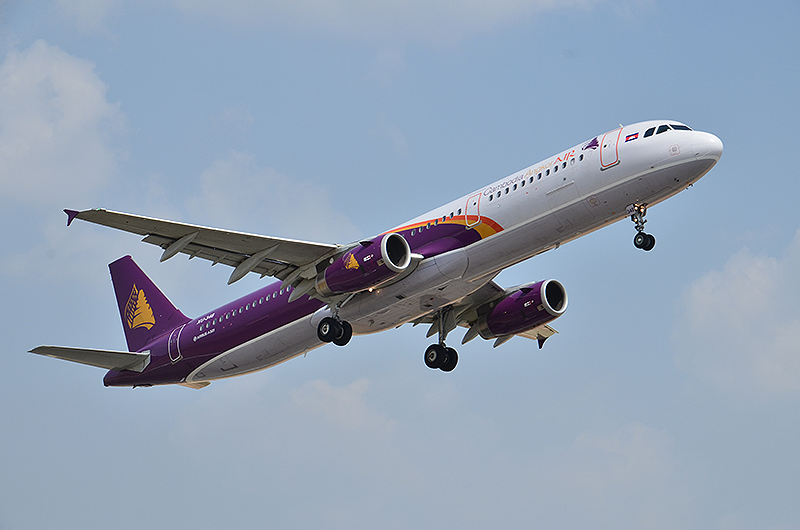
Eventually I had to go back to college. Before the diploma ink could dry, my wife and I moved to Jakarta. With no money to spare, we flew as couriers on privatized Japan Airlines, Kelly on one day and me the following day. I was handed a package and walked to the gate, treated like any other paying customer, in that once I was seated there was an endless supply of Sapporo cans, tiny squares of food artfully presented and prepared, and between meals one could stock up on little sandwiches and breadsticks and salty fish snacks from a cart left in a dimly-lit galley. In Tokyo, a bus took me to an airport hotel, where the room was a little bigger than a bed. After twelve hours of sleep, I boarded another flight, this time for Singapore. Kelly had been waiting for me on the tiny island nation for twenty-four hours. And she’d already shared an entire bottle of duty-free whiskey with the Chinese guy who ran the guesthouse.
GARUDA’S CEO, HIS DEPUTY, AND A PILOT WERE ALL CONVICTED OF MURDERING A HUMAN RIGHTS ACTIVIST WHO WAS POISONED ON A FLIGHT TO AMSTERDAM
In order to renew our thirty-day visas, when we could afford it, we’d fly international on Garuda Indonesia—the massive state airline, with segments to only some of the country’s 13,000 islands. More typically, we’d take a domestic flight to Batam, in northwest Indonesia, a boat-ride across the Strait to a new visa. It was impossible not to hum, “We sail tonight for Singapore.” One time, realizing too late I had over-stayed my visa by two days, I was accosted by a fat border guard. “You like our prostitutes” he said. “Too busy fucking for new visa?” Though I showed him a wedding ring and pleaded for mercy he gestured with his finger into a tightly coiled fist, mimicking sex, and charged me fines calculated by the hour. Flying back to Jakarta that night, the meal was Rendeng and the stewards were all men, and I ate spicy beef paste, and with a fire in my mouth and a resolve to do better I drank a Bintang and found myself in a flower-choked capital of twenty million, where pigeons roosted happily among the terminal’s teak roof beams. Just after we left Indonesia, Garuda’s CEO, his deputy, and a pilot were all convicted of murdering a human rights activist who was poisoned on a flight to Amsterdam.
“FUCK IT, WHO CARES?” SAID THE STEWARDESS
We next fell in love with Russia. Over many years flying back and forth from either Peter or Moscow to New York City, we suffered the charms and terrors of Aeroflot. Who but the former Soviet Union’s national airline—of which the government maintains a majority stake—would think flying to Russia should cost only $800? The same people who required one to route through Moscow at six in the morning, still enlivened by a weapons-grade belly of vodka, only to wait for several nerve-wracking hours for a transfer bus to show up just minutes before the international flight, a slow 20-minute drive between terminals—fields on either side of the road choked with weeds that thrive only during the six weeks or so they aren’t buried under frost—and then the shoving, babushka-laden wait in some line to board a plane that contains a flight staff who smells at least as drunk as the passengers, on a plane that makes groaning noises, surrounded by men who thought nothing of taking five beers at a time from the drinks cart—because, after all, beer is not actually liquor—and everyone smelling of the cigarettes fired up in the lavatories. I think it says something that I was permitted to use my laptop even during touch-down on a flight from Moscow to Bangkok— “Fuck it, who cares?” said the stewardess—and though I perhaps typed a few important sentences, when the wheels hit the tarmac, quite harshly, my iBook slammed to the well-worn carpet and the screen shattered. Russia was hard.
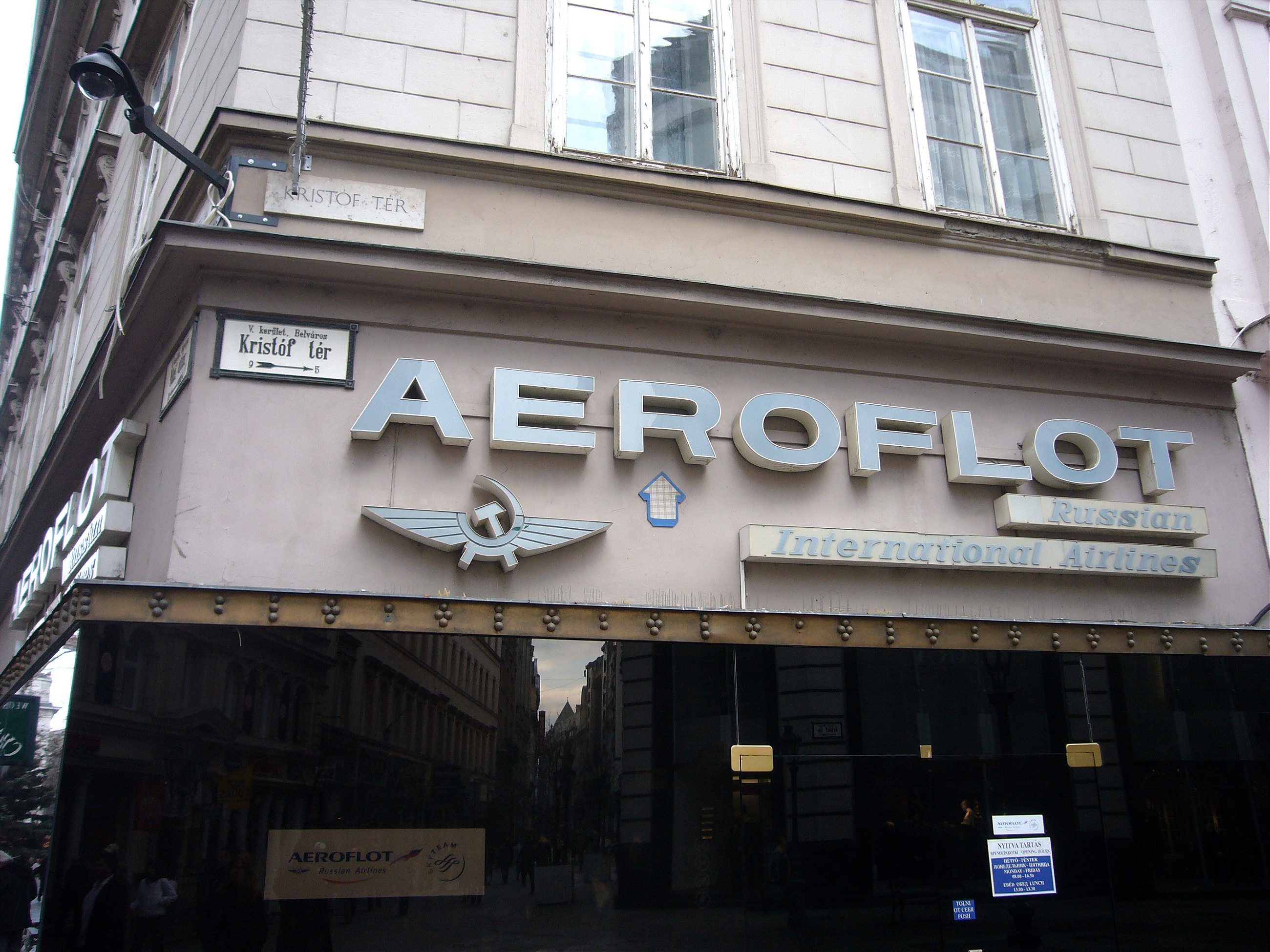
By the time I finally got another laptop we moved to the Middle East. How many of us ever live in Saudi Arabia? After getting our daughter’s birth certificate translated from Arabic into English, we collected her new passport, and boarded a Saudi Arabian Airlines 747, flying nonstop to New York. Majority-owned by the Kingdom, custodian of the world’s two holiest Islamic sites, every Saudia plane flew without three rows of center-aisle seats, replaced with a prayer rug and heavy curtains. Semi-larval, Loretta wasn’t old enough yet to crawl around, and anyway when I parted the curtains, I was glared at by various bearded men, most of whom were traveling with eight to twelve children, tended to by two or so of the four wives they were permitted to keep. These sprawling families were loud and wild but kept to themselves, the woman dark and forbidding behind black shrouds, the teenaged sons buried behind digital gizmos. The real action, in terms of human contact, was from the stewardesses, a largely Filipino crew who took Loretta from my arms and disappeared for fifteen minutes. Not worried exactly, but curious, I found them doing an elaborate photo shoot with the little blonde whitey in the galley. When the plane was about to land, the captain prayed to us, and we woke our daughter up from her nap on the floor—they let us do that—to hold her in our arms.
I REALIZED—AFTER A GREAT DEAL OF RESEARCH—THAT TURKISH BEER AND WINE WAS ACTUALLY A LOT LIKE POISON
Then my wife got a job in Iraq, so I moved with the little girl to Turkey, where I began an affair with Turkish Airlines. At first, I was thrilled to live in a country where I could booze. Each seat on the national airline had movie consoles and no little kids were running up and down the aisle, smacking people in the face. Too soon, however, I realized—after a great deal of research—that Turkish beer and wine was actually a lot like poison. And that Turkish Airlines, expanding rapidly and connected in various ways both clear and subtle to Turkey’s new notion of itself, was actually not as great as it seemed. More importantly, planes started malfunctioning, or were late, or crashed in Amsterdam, killing nine, and I came to hate the promo video aired during taxiing, of Kobe Bryant and that smug English footballer horsing around like idiots. Sometimes the video wouldn’t even play correctly, and the athletes would freeze there smiling at us, stuck in our chairs.
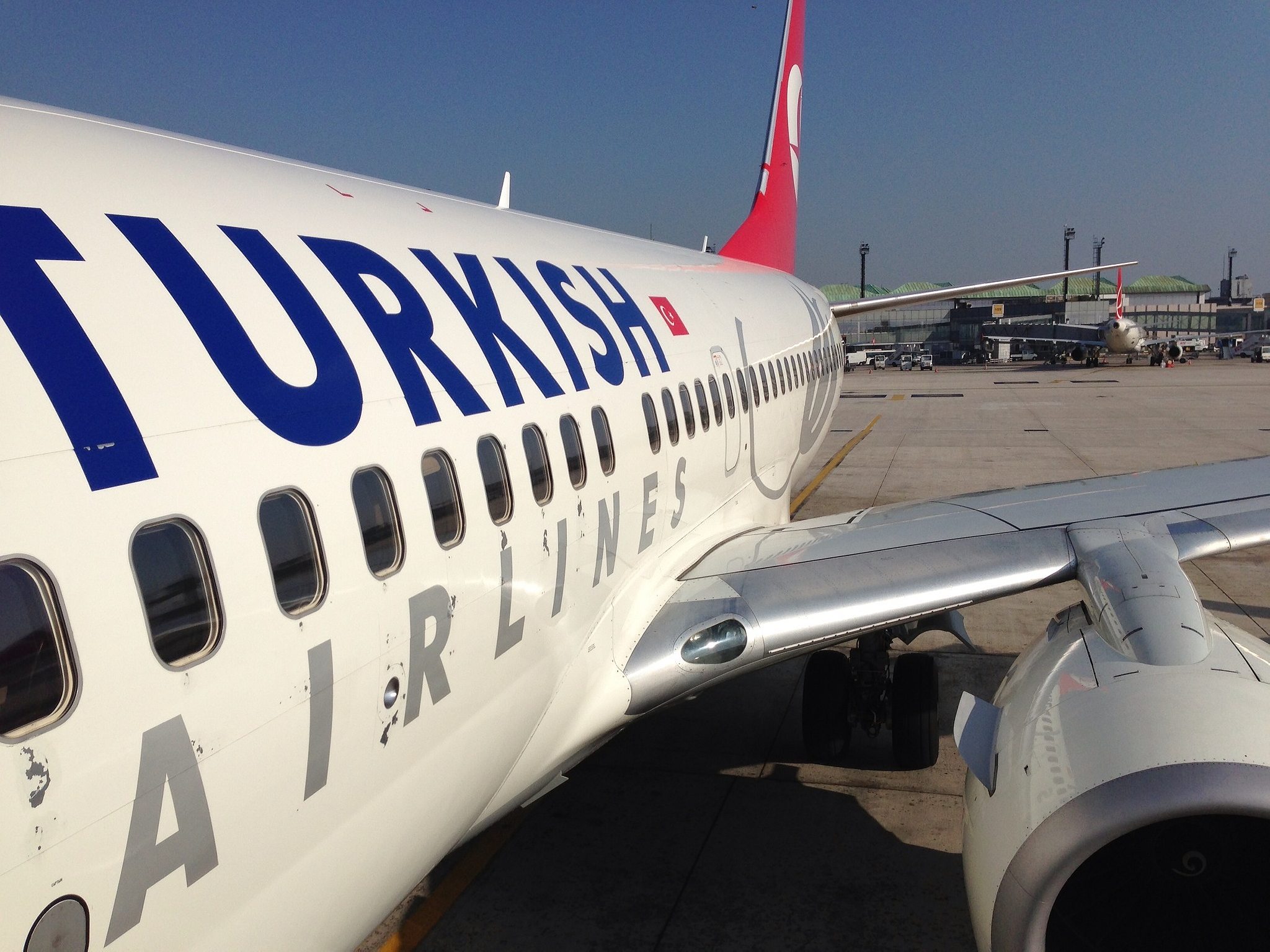
When Turkey tried and failed to lead the world on Syria, when it began cracking down on protesters, when this spring its embittered president began to rail against Twitter, it was hard not to hum the airline’s theme—We are Turkish Airlines, we are globally yours.
After what I perceived as the arrogance of Turkey I was relieved by tiny Lebanon, with just two million in its capital, and a total population under five million. We lived in a hundred-year-old house on a quiet street and could get to the airport in ten minutes. Middle East Airlines-Air Liban was fantastic—you could book the day before and change tickets at the last minute and nobody connected to its semi-orderly functioning was in much of a rush. At the cafe beside the departure gate, you could buy a croissant and a beer and amble up to the ticket agent a few minutes before takeoff. The airline didn’t even have a first class, just a so-called Cedar Class, which was really just a slightly down-market set of front-row business seats. The whole thing felt much more like a reflection of a place I’d want to call home, where hard-working people couldn’t help being beautiful and fabulous. Then the Syrian uprising turned into a civil war, and with nearly a million refugees pouring into Lebanon, the place was starting to feel darker than I’d bargained for. On one of our last flights out, a man with a deep scar on his neck toyed with an iPhone app, which pulled up an image of an AK. He tapped, and the screen flashed with fire and with the sound of a bullet exploding. He did it again and again. Not many people are visiting Beirut these days.
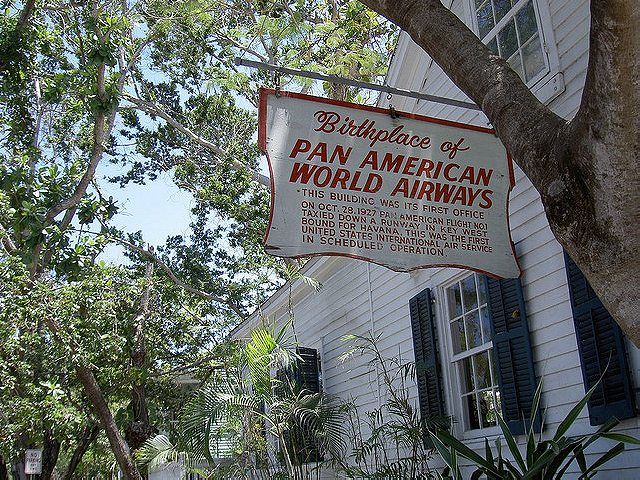
What happened on Malaysian could have happened to any another airline. Some carriers—such as TWA (Flight 800, 1996), PanAm (Lockerbie, 1988), and SwissAir (Nova Scotia, 1998), never recover after a high-profile disaster. A reporter recently booked a segment on Malaysian from Kuala Lumpur to Beijing. The plane was mostly empty.
There’s no blueprint for how a country can succeed, or exactly what it should do—no more than there is a clear plan for how any of us should plot our lives. After five years of living abroad and most of my adult life out of America, my passport is currently gathering dust. The other day, I took a trip to Baltimore. I flew American Airlines. The experience was nice enough, but uneventful.
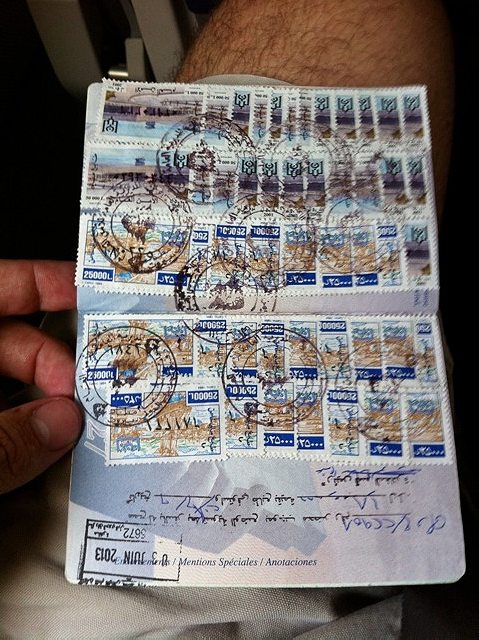
[Header image: Middle East Airlines-Air Liban planes on the tarmac in Beirut. “Southern suburbs from the airport” by Francisco Anzola, used under CC BY 2.0]